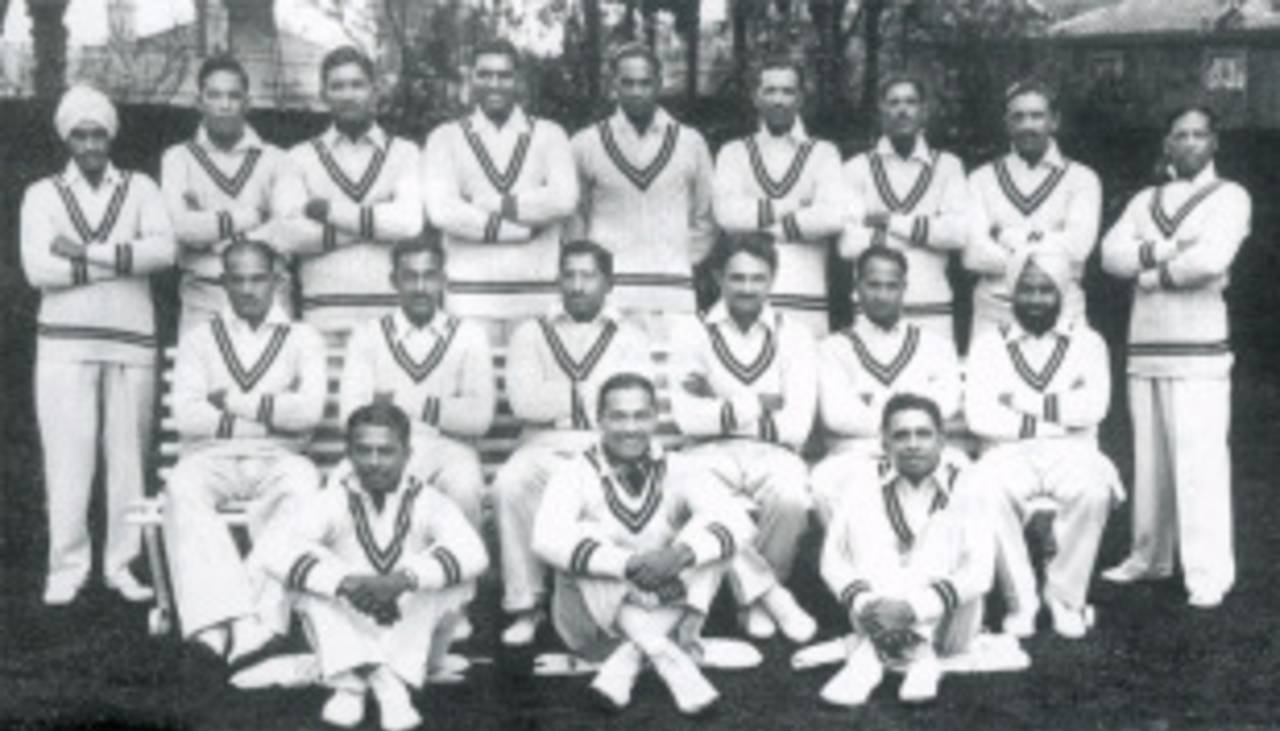Curiously significant dates: Making history more inclusive
On Tuesday, I attended a talk in the Political Science department at Brooklyn College
Samir Chopra
25-Feb-2013

'In my case, in order for dates like 1932 to become entrenched in my mind, my attitude toward Indian cricketing history had to change' • ESPNcricinfo Ltd
On Tuesday, I attended a talk in the Political Science department at Brooklyn College. The topic was the relationship between state and federal courts in the domain of immigration regulation. A central landmark in this relationship was the passing of the Chinese Exclusion Act (CEA), which allowed the US to suspend Chinese immigration; the law was finally repealed by the Magnuson Act in 1943. The year in which the CEA was passed was 1882.
As the speaker put a Powerpoint slide up with this information on it, I experienced a reaction similar to that reported in my post on curiously significant numbers; once again, I was in the presence of a curiously significant cricketing number, this time a year.
Landmarks in cricket's history stand out no matter where we run into them. This act of recognition of mine was bound to be instinctive. And sometimes we recognise years run together as cricket seasons; many cricket fans cannot look at 1960-61 without thinking of the Tied Test.
But in noting the year in which the Ashes rivalry commenced, I was also reminded of a peculiar feature of my relationship to cricket history. For all too many years, in my cricketing youth, the most significant dates in my reckonings of cricket history had nothing to do with India. The Anglo-Australian rivalry loomed large: 1877, 1882, 1905, 1920-21, 1953, 1958 (and many others) all seemed worthy of remembrance. Because I was Bradman-obsessed, I reacted particularly sharply to 1930, 1934, 1938, and 1948. I was a fan of West Indies too, so 1950, 1963, 1966, 1975 and 1976 all seemed to loom large for me.
But where was 1932 in all of this? Where indeed, was 1971? When 1983 rolled around, and India became the World Cup winners, it quickly became established as an iconic date for all Indian cricket fans, but in my case for that entrenchment to take place, my attitude toward Indian cricketing history had to change. For it had become painfully clear to me well before then that I was particularly ignorant of most crucial details of that narrative.
This is especially curious when I realise that I was brought up by a father who told me stories of watching, with great pleasure, CK Nayudu, Mushtaq Ali, and Vijay Merchant bat. (Sure, he told me stories about the Australian Services team and of running into Frank Worrell's team on an ocean liner too, but these stories never crowded out Indian cricket history.) Somehow, in my mysteriously colonised cricketing mind, Indian cricketing achievements had been marginalised, diminished, reduced.
If there was one experience that changed this state of affairs most dramatically, it was reading Partab Ramchand's Great Moments in Indian Cricket. I bought the book sometime in the late seventies and was immediately exposed to tales of Indian cricketing assertion and achievement. The years 1952, 1956, 1959-60, 1964-65, 1967, 1971, 1974-75 and 1976 now acquired lustre. 1976 wasn't just the year the West Indies beat England 3-0, it was also the year of Port of Spain. Vinoo Mankad, Jasu Patel, Subhash Gupte, MAK Pataudi, Ajit Wadekar and Dilip Sardesai became cricketing names that now jostled for attention along with Bannerman, Armstrong, Woodfull, Hutton, Harvey and all of the rest.
My reaction to Ramchand's book was, in many ways, quite complicated and I do not have adequate space to fully do it justice here. But if I had to seize on one act of mine that changed my orientation to cricket history and writing, and its implicit and explicit information order, it would be that fateful purchase, indulged in by a parent who might have wondered why his son didn't seem as obsessed by Mushtaq and Merchant as he was by McCabe and McCartney.
Samir Chopra lives in Brooklyn and teaches Philosophy at the City University of New York. He tweets here